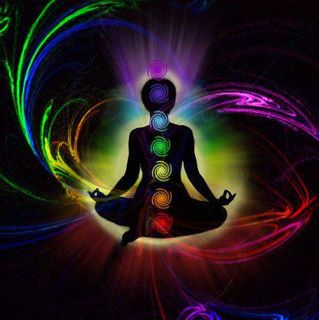Overcoming Barriers to Consciousness
In the pursuit of spiritual growth and self-realisation, one
often encounters various barriers that hinder the expansion of consciousness.
These barriers, though subtle, can have a profound impact on our journey
towards higher awareness. Let's explore some of the common obstacles and how to
transcend them.
The ego, though essential for our sense of self, can become
a significant barrier to higher consciousness. When we overly identify with our
roles, possessions, and achievements, we limit our true nature. By recognising
the transient nature of these attachments, we can begin to dissolve the ego's
dominance.
Fear often keeps us bound to our comfort zones, preventing
us from exploring new realms of consciousness. This fear may stem from the
unknown, fear of failure, or fear of losing control. To overcome this barrier,
we must cultivate courage and embrace uncertainty as a gateway to growth.
Holding onto rigid beliefs and judgments about ourselves and
the world around us creates a narrow lens through which we view reality. True
consciousness requires an open mind, free from preconceived notions. By
practicing non-judgmental awareness, we can expand our perspective.
The attachment to specific outcomes can blind us to the
beauty and wisdom present in the present moment. When we let go of rigid
expectations, we open ourselves to the flow of life and allow for unexpected,
transformative experiences to unfold.
Past traumas and unprocessed emotions can create energy
blockages, preventing the free flow of consciousness. Engaging in practices
like mindfulness, meditation, and therapy can help release these energetic
knots and facilitate a deeper connection to our true selves.
In our fast-paced, digitally-driven world, constant
distractions can hinder our ability to cultivate mindfulness and presence.
Creating moments of stillness and unplugging from external stimuli allows us to
tune into our inner wisdom and access higher states of consciousness.
Identifying strongly with labels, whether they be related to
profession, nationality, or social status, can create a false sense of self.
Recognising that these are transient aspects of our existence can liberate us
from the constraints they impose.
Often, we find ourselves dwelling on the past or projecting
into the future, neglecting the richness of the present moment. Cultivating
mindfulness through practices like meditation, deep breathing, and conscious
awareness brings us back to the now, where true consciousness resides.
The comfort of familiarity can be a seductive force,
deterring us from embracing change and evolution. Embracing impermanence and
the natural cycles of life allows for a more graceful flow towards higher
states of consciousness.
Relying solely on intellectual understanding can create a
barrier to experiencing consciousness on a deeper, intuitive level. Balancing
intellectual knowledge with embodied wisdom and intuitive insights allows for a
more holistic and profound connection to higher awareness.
Breaking through these barriers to consciousness requires
patience, dedication, and a willingness to explore the depths of our being.
It's a journey of self-discovery, a peeling away of layers that reveals the
radiant core of our true nature. As we navigate these obstacles, we inch closer
to a state of heightened awareness and a deeper connection with the boundless
consciousness that underlies all of existence.









